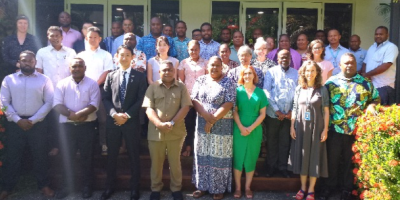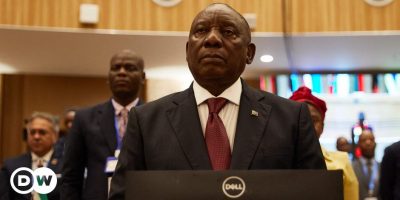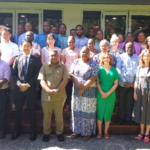MBABANE – Finance Manager at Stanlib Eswatini Fundile Dlamini, is facing a disciplinary hearing following allegations of gross dishonesty, negligence and breach of company policy involving over E834 000 in irregular expenditure. The alleged expenditure includes undeclared payments for the Nedbank and Carling Black Label cups in the neighbouring South African and tickets for a tennis tournament in France. A formal disciplinary enquiry was scheduled to be held at Mountain View International Hotel in Mbabane.
According to a letter from Acting General Manager Dumisani Dlamini, Fundile was placed on precautionary suspension on August 1, 2024, pending investigations into alleged misconduct. The investigation, which included a forensic audit, revealed sufficient grounds to proceed with disciplinary action. Fundile is accused of concealing and/or disguising an irregular expenditure of E354 356 made to Emperor’s Travel in October 2022, and then unlawfully writing off this amount within two months, between May and June 2023, without the Board’s approval. This alleged action constitutes gross dishonesty and a breach of Stanlib policy, according to the letter.
Policy
Furthermore, Fundile is accused of breaching the Stanlib Gift Policy and the Stanlib Eswatini Anti-Bribery and Corruption Policy. She is accused of authorising payments totaling E480 641.89 for various expenses, including hunting expeditions, electronic devices, tickets to sporting events (Carling Cup, Nedbank Cup and a tennis tournament in France) and undisclosed vouchers. These payments, the letter states, were not declared in the Stanlib Eswatini Gift Register, as required. Adding to the charges, Fundile is also accused of gross negligence for failing to secure confidential files for Standard Bank Accounts 1 and 2, which were under her custody and control. These files are now reportedly missing.
The letter from Dumisani outlines Fundile’s rights during the disciplinary process, including the right to representation (legal or otherwise), the right to call witnesses and cross-examine company witnesses, the right to an interpreter if needed, and the right to appeal any adverse findings. Given the seniority of Fundile’s position, an external chairperson will be appointed to ensure fairness and objectivity in the proceedings. Fundile, who is currently suspended with pay, has since filed an application with the Industrial Court to review and set aside decisions made by the Chairperson of her disciplinary hearing, Mphilisi Mtshali.
Fundile alleges bias and unfairness in the proceedings, claiming her right to a fair hearing has been violated. In her founding affidavit, Fundile details several instances where she believes the chairperson acted improperly. She claims Mtshali demonstrated bias towards Stanlib Eswatini, the first Respondent, by, among other things, offering advice to the company’s star witness, Michael du Toit, during his testimony. She further alleges that Mtshali readily entertained legal submissions from the company while dismissing similar submissions from her legal representative, indicating a lack of impartiality. A key point of contention revolves around the testimony of Du Toit, who resides in South Africa.
Company
Fundile states that while Du Toit initially appeared in person for the hearing, the company later requested he testify virtually, citing travel constraints and financial implications. While Fundile’s legal representative agreed to the virtual testimony for the remainder of Du Toit’s examination-in-chief, she argues that cross-examination was explicitly agreed to be conducted physically in Eswatini. However, she claims that the chairperson later allowed Du Toit to appear virtually for cross-examination, despite objections from her legal team, effectively reversing a previous decision. Fundile argues that this constitutes a reviewable error of law.
Another significant issue raised by Fundile is the company’s refusal to provide copies of work permits for South African witnesses, including Du Toit. She argues that these permits are crucial for ensuring the legality of the proceedings and that the company’s withholding of this information further undermines the fairness of the hearing. She has provided evidence of requesting these permits on three separate occasions. Fundile also claims that she was denied access to the disciplinary records of two other employees, Muziwanele Manyathi and Phetsile Matsebula, who were allegedly involved in similar offences. She argues that access to these records is essential for her defence and that the chairperson’s refusal to grant access, citing the Data Protection Act, is irrational and unfair.
Hearing
Fundile, who is represented by Banele Gamedze of Musa M Sibandze Attorneys, is seeking the following orders; staying the disciplinary hearing pending the outcome of the court case, reviewing and setting aside the chairperson’s decisions of January 15 and 21, 2025 and directing Stanlib Eswatini to provide the disciplinary records of Manyathi and Matsebula. Her other prayers are directing Du Toit to appear physically in Eswatini for the hearing, directing Stanlib Eswatini to provide Du Toit’s valid work permit and granting her leave to supplement her court papers once the permits are provided and a ruling on a recusal application against the chairperson is delivered. On Friday, the court was told that Stanlib would not hold the hearing as scheduled, for now. Fundile argues that exceptional circumstances exist, warranting the court’s intervention in the incomplete disciplinary proceedings, citing a violation of her right to a fair hearing. Stanlib is represented by Zweli Jele of Robinson Bertram. The matter is pending before Judge Abande Dlamini.
















